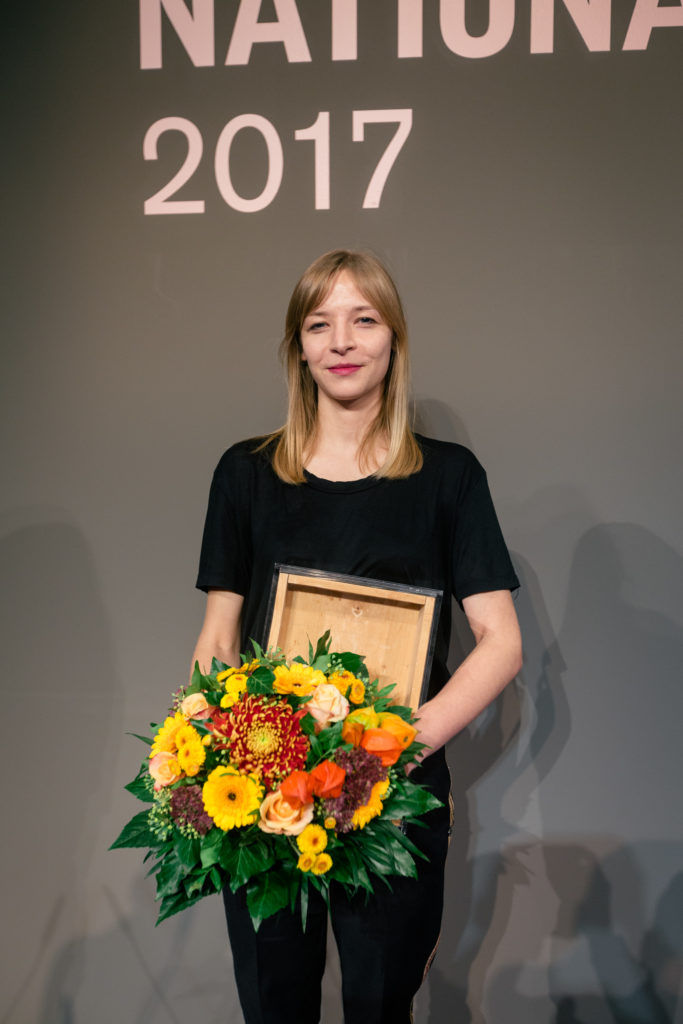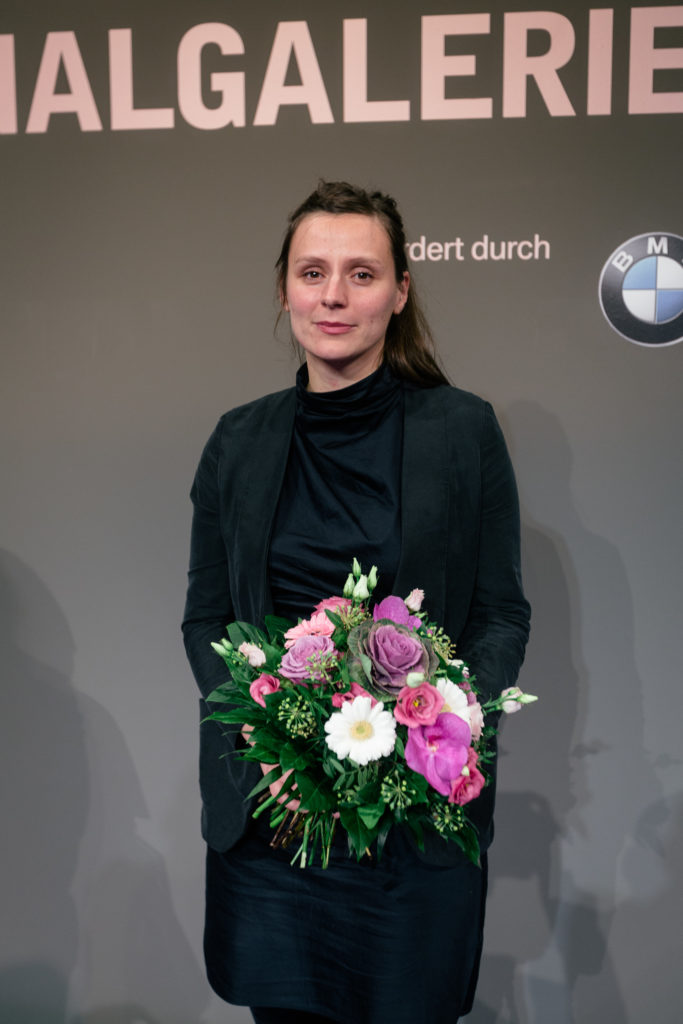
On the evening of 20 October 2017, in the presence of State Minister of Culture Monika Grütters, the winner of the Preis der Nationalgalerie was announced in an award ceremony at Hamburger Bahnhof – Museum für Gegenwart – Berlin.
The jury, consisting of Zdenka Badovinac, director of the Moderna galerija, Ljubljana, Hou Hanru, artistic director of the MAXXI Museo nazionale delle arti del XXI secolo, Rome, Sheena Wagstaff, Leonard A. Lauder Chairman for Modern and Contemporary Art of the Metropolitan Museum of Art, New York, Sven Beckstette, curator at Hamburger Bahnhof – Museum für Gegenwart – Berlin, and Udo Kittelmann, director of the Nationalgalerie – Staatliche Museen zu Berlin, decided after intensive discussions on Agnieszka Polska (born 1985 in Lublin) as the prize winner.
With the award Agnieszka Polska wins a major solo exhibition next year in one of the Nationalgalerie’s institutions as well as an accompanying publication.
Jury statement:
The jury congratulates each one of the artists for their excellent and thought-provoking exhibitions here at the Hamburger Bahnhof – Museum für Gegenwart – Berlin. After a robust discussion of all four artistic positions, the jury decided to award the Preis der Nationalgalerie 2017 to Agnieszka Polska. Throughout her work, Polska ingeniously interweaves some of the most pressing issues of our time. She deftly creates a poetic and affective relationship between the visual and acoustic language of our digitally infused daily lives by using contemporary imaginary and cultural references–including scientific theories, early animation, and the utopian inclination of the avant-garde. In her exploration of multiple temporalities within our universe she destabilizes the very notion of humanity and humanness. As the personification of the sun in her film states: “My gaze was moving at constant speed, and everything was becoming irreversible the moment I observed it.” We look forward to seeing Agnieszka Polska’s exhibition at the Nationalgalerie in autumn 2018.
Sandra Wollner wins the Förderpreis für Filmkunst 2017

In cooperation with the Deutsche Filmakademie the Förderpreis für Filmkunst, endowed with 10000 Euros, was awarded for the fourth time. The winner is Sandra Wollner for the film “Das unmögliche Bild” (“The Impossible Picture”, 2016, 70 minutes).
The Jury, consisting of Meret Becker, actor, member of the Deutsche Filmakademie, Alexander Beyer, actor, member of the Deutsche Filmakademie, Natasha Ginwala, curator of the Contour Biennale 8 and curatorial adviser of the documenta 14, Alice Motard, chief curator at the CAPC Musée d’Art Contemporain de Bordeaux, and Alya Sebti, head of the ifa-Galerie Berlin, chose the winner from a shortlist of four candidates.
Jury Statement:
Sandra Wollner’s quiet meditation on the life cycle seems to hover between documentary and fiction. A film about life and death in many levels, it is also—and more fundamentally—a film about repetition: about the repetition of fate, the recurrent nature of memories and their similarity in this respect to the medium of film as a keeper of life in the form of a conserved and repeatable memory. Set in a large family home in 1950s Austria, the film uses the aesthetics and atmosphere of archival material. The attitude of the camera and the way the contents are told adopt the reality of a documented past experienced first hand by the female narrator, who at times also takes over the place behind the camera. She tells and shows us scenes from her life coming from the depths of her memory and looked at from a point beyond her lifetime. The viewer can hardly ward off the overwhelming feeling that she indeed allows us a glimpse into her own, self-experienced history and the story of her family.
Sandra Wollner convinced the jury with her mastery of the filmic language, which she employs with great accuracy, admirable creativity and ease. In both its carefully orchestrated and in its seemingly arbitrary moments, the film is always made with enormous precision. It is constructed as a cyclical puzzle where every part falls beautifully into place. Its pieces are interconnected in many ways, thus constructing a narrative structure that goes beyond linear narration. Blurring the boundaries between an experimental work of art, a documentary, and a cinematic film, Wollner’s work furthermore seems to mix the strengths of a novel, a painting, and a musical composition, using elements that are not inherently or necessarily filmic. The result is a work of art that is hard to describe in words.
The prize-winning film will be on view at Hamburger Bahnhof from 21 October to 14 January 2018 parallel to the works of the four nominated artists.